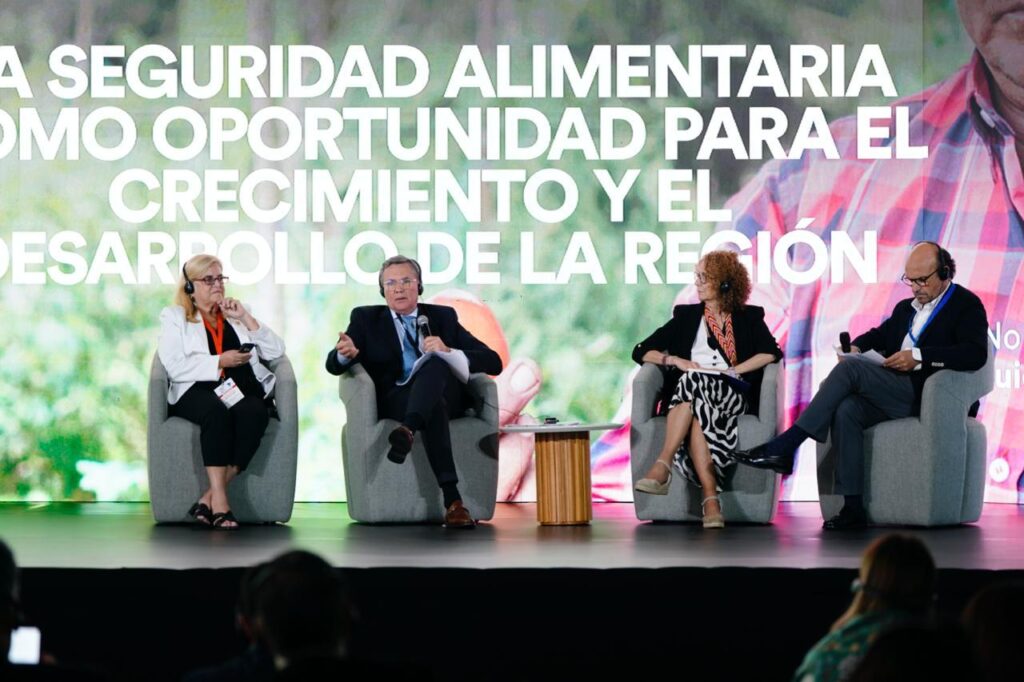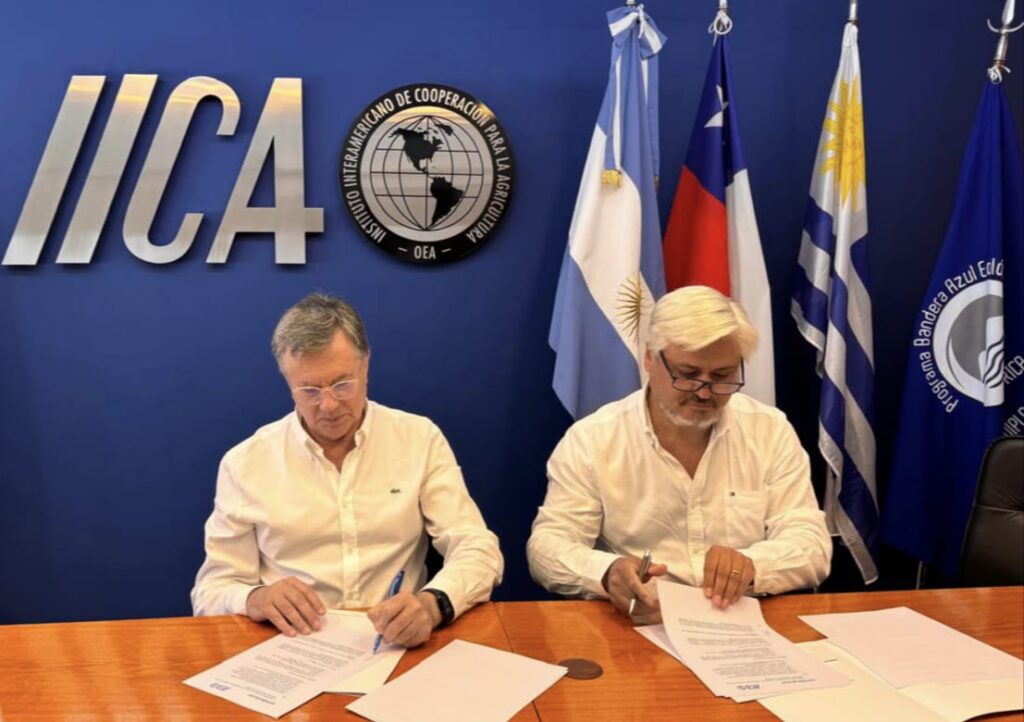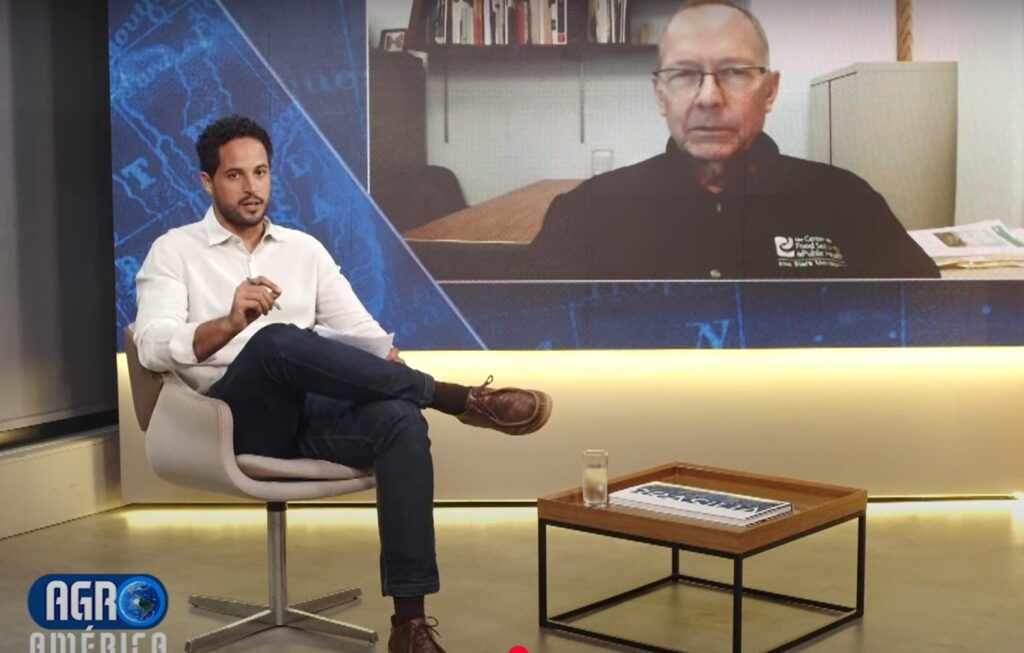El IICA presentó en la Cumbre de las Américas propuestas concretas para la acción colectiva de los países de la región, con el foco en el fortalecimiento y la transformación de sus sistemas agroalimentarios, a los que consideró una herramienta fundamental para la seguridad alimentaria, la sostenibilidad ambiental y, también, para la búsqueda de paz y estabilidad democrática.
Los Ángeles, EE.UU., 10 de junio de 2022 (IICA) – El trabajo coordinado de los países de las Américas evitará una crisis alimentaria, nutricional y humanitaria en la región y en el mundo, en momentos en que la superposición de los efectos de la pandemia de Covid-19 y del conflicto bélico en Europa del Este altera las cadenas de abastecimiento y dispara los costos de la producción agroalimentaria y los precios de la comida, indicó el Instituto Interamericano de Cooperación para la Agricultura (IICA).
Con esta premisa, el IICA, organismo internacional especializado en desarrollo agropecuario y rural del Sistema Interamericano, presentó en la Cumbre de las Américas propuestas concretas para la acción colectiva de los países de la región, con el foco en el fortalecimiento y la transformación de sus sistemas agroalimentarios, a los que consideró una herramienta fundamental para la seguridad alimentaria, la sostenibilidad ambiental y, también, para la búsqueda de paz y estabilidad democrática.
El documento “Propuestas para reforzar la acción colectiva en las Américas con el objetivo de combatir la inseguridad alimentaria y asegurar el desarrollo sostenible”, presentado por el Director General del IICA, Manuel Otero, en la cita hemisférica de Jefes de Estado y de Gobierno, señala que la abundancia de recursos naturales representa para las Américas una gran oportunidad para lograr una mayor diversificación productiva que genere beneficios en lo económico, lo social y ambiental, y contribuya a la consolidación democrática en el Hemisferio.
“El funcionamiento de los sistemas agroalimentarios de las Américas –afirma el IICA- repercute a nivel global, tanto en términos de la seguridad alimentaria como en la sostenibilidad ambiental. El continente es el principal exportador mundial neto de productos agropecuarios y de alimentos, transformándose en un ancla fundamental de la seguridad alimentaria mundial al contribuir a la estabilidad en los precios y la oferta de esos productos”.
“Un mal funcionamiento de los sistemas agroalimentarios de la región –agrega- además de afectar la seguridad alimentaria y la sostenibilidad del planeta, también puede acarrear externalidades negativas para el resto del mundo, como la migración en condiciones de estrés y mayor vulnerabilidad social”.
El trabajo señala que la región cuenta con activos que potencian su rol estratégico a futuro, como continente de paz, con disponibilidad de recursos naturales y diversidad de sistemas productivos, pero que a la vez mantiene brechas sociales y de productividad que revelan la necesidad de modernizar los sistemas agroalimentarios. También recuerda que las Américas tienen una historia de esfuerzos conjuntos entre países que debe continuar.
Frente a escenarios políticos, económicos y comerciales inciertos y de volatilidad sostenida y creciente –señala el IICA-, la oportunidad está en que gobiernos, sector privado, organismos multilaterales de crédito, la cooperación técnica y la sociedad civil trabajen conjuntamente, con el objetivo de que la región alcance mejores estándares de desempeño productivo, comercial, social y ambiental. De esta manera, si los países de la región trabajan de forma coordinada y solidaria, las actuales condiciones no tienen por qué conducir a una crisis humanitaria.
Entre las acciones que el IICA propone para hacer frente a los desafíos de corto plazo figuran:
-crear instancias de diálogo público-privadas para monitorear precios y asegurar el abastecimiento de fertilizantes para las campañas 2022-2023;
-coordinar con el sistema bancario financiamiento adecuado para hacer frente a los mayores costos de producción;
-reforzar las redes de protección social y los planes alimentarios para sostener el acceso a dietas saludables para las poblaciones de menores ingresos y vulnerables;
-promover el comercio y la integración regional, y
-asegurar el adecuado funcionamiento del comercio internacional de alimentos, evitando generar mayor volatilidad en los mercados mundiales.
El escenario de crisis superpuestas -alerta el IICA- exige respuestas urgentes para el corto plazo, que además generen resiliencia frente a un mundo futuro que se anticipa más desafiante e inestable.
Para las tareas de mediano y largo plazo, el IICA propone cuatro ejes estratégicos que retoman los consensos alcanzados por los ministros de Agricultura de las Américas -tras extensas jornadas de debate coordinadas por el organismo- alrededor de 16 mensajes clave sobre el papel irremplazable de la agricultura, que el continente presentó ante la Cumbre de Sistemas Alimentarios 2021 de las Naciones Unidas.
El primer eje se orienta al fortalecimiento y transformación de los sistemas agroalimentarios de las Américas. Esa visión destaca el papel esencial de los sistemas agroalimentarios en el desarrollo económico, el empleo decente y las exportaciones, basado en un sector privado dinámico, que incluya a las mujeres, las minorías y los jóvenes.
El segundo hace foco en los desafíos y oportunidades del comercio agroalimentario de las Américas en el nuevo contexto geopolítico. El documento advierte que es conveniente promover y facilitar el comercio intrarregional de productos alimentarios, que hoy no está siendo aprovechado en todo su potencial por problemas como la insuficiencia en la infraestructura y logística, y la ausencia de una adecuada convergencia regulatoria.
El papel de la ciencia, la tecnología y la innovación como instrumentos centrales para una producción agroindustrial eficiente y sustentable y para cerrar brechas de productividad es el tercer eje. La tecnología aparece como el medio para adaptarse al cambio climático, al tiempo que se aprovecha el potencial productivo, para lo cual es imprescindible asegurar las capacidades para acceder a las tecnologías, a través de un aumento de los niveles de inversión en investigación y desarrollo en la región.
El cuarto eje apunta a la necesidad de facilitar la inclusión económica y social reforzando al sistema cooperativo. En ese sentido, se señala que la crisis está poniendo a la agricultura familiar bajo presiones adicionales a las que ya venía sufriendo.
La presencia de las empresas cooperativas agrarias en las economías rurales –afirma el documento- es particularmente importante en escenarios de incertidumbre. En ese convencimiento, el IICA generará distintas acciones y proyectos de alcance hemisférico -en alianza estratégica con instituciones internacionales, redes académicas, el sector privado y la sociedad civil-, para facilitar la modernización de la agricultura familiar y fortalecer a los líderes cooperativos.
Más información:
Gerencia de Comunicación Institucional
comunicacion.institucional@iica.int










